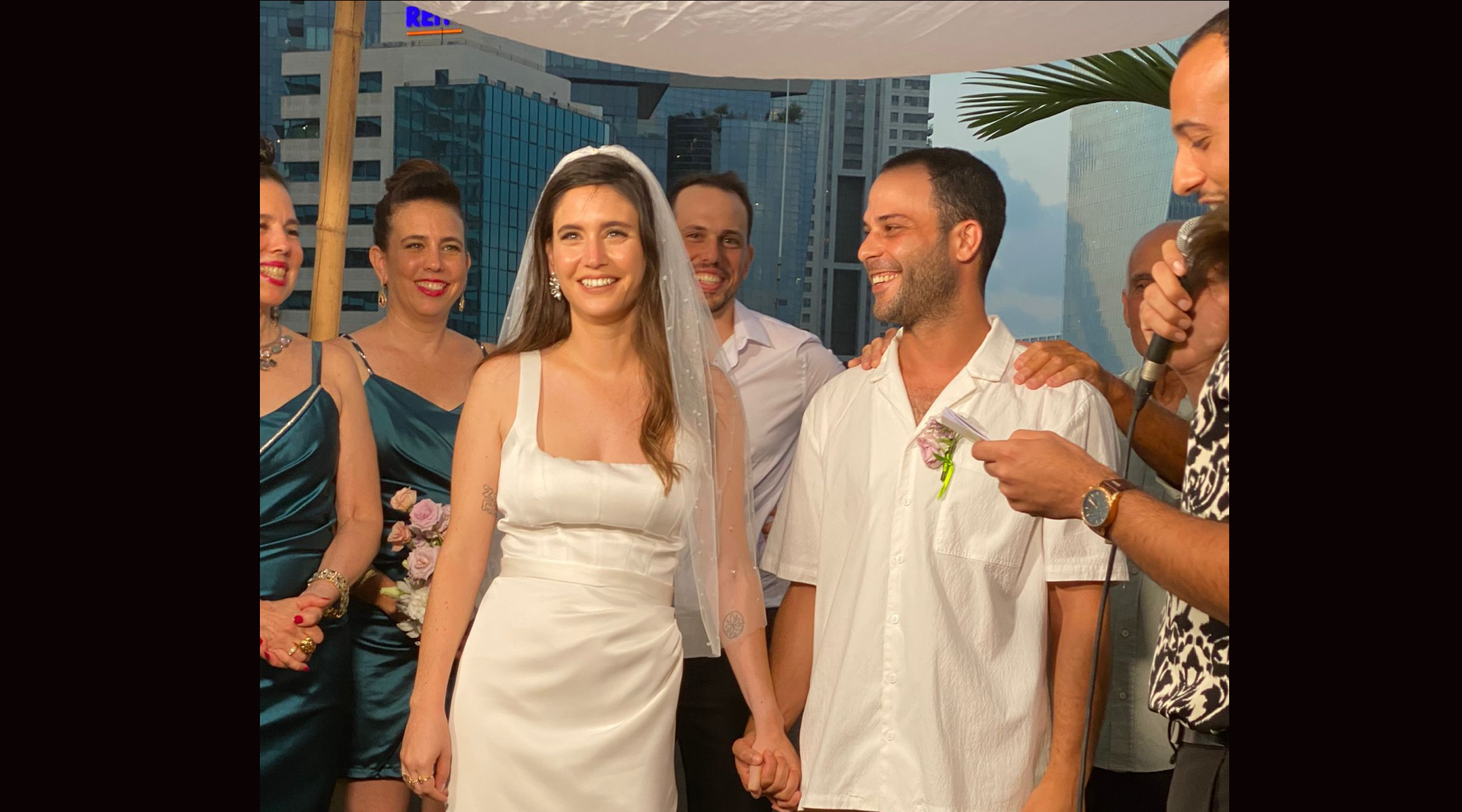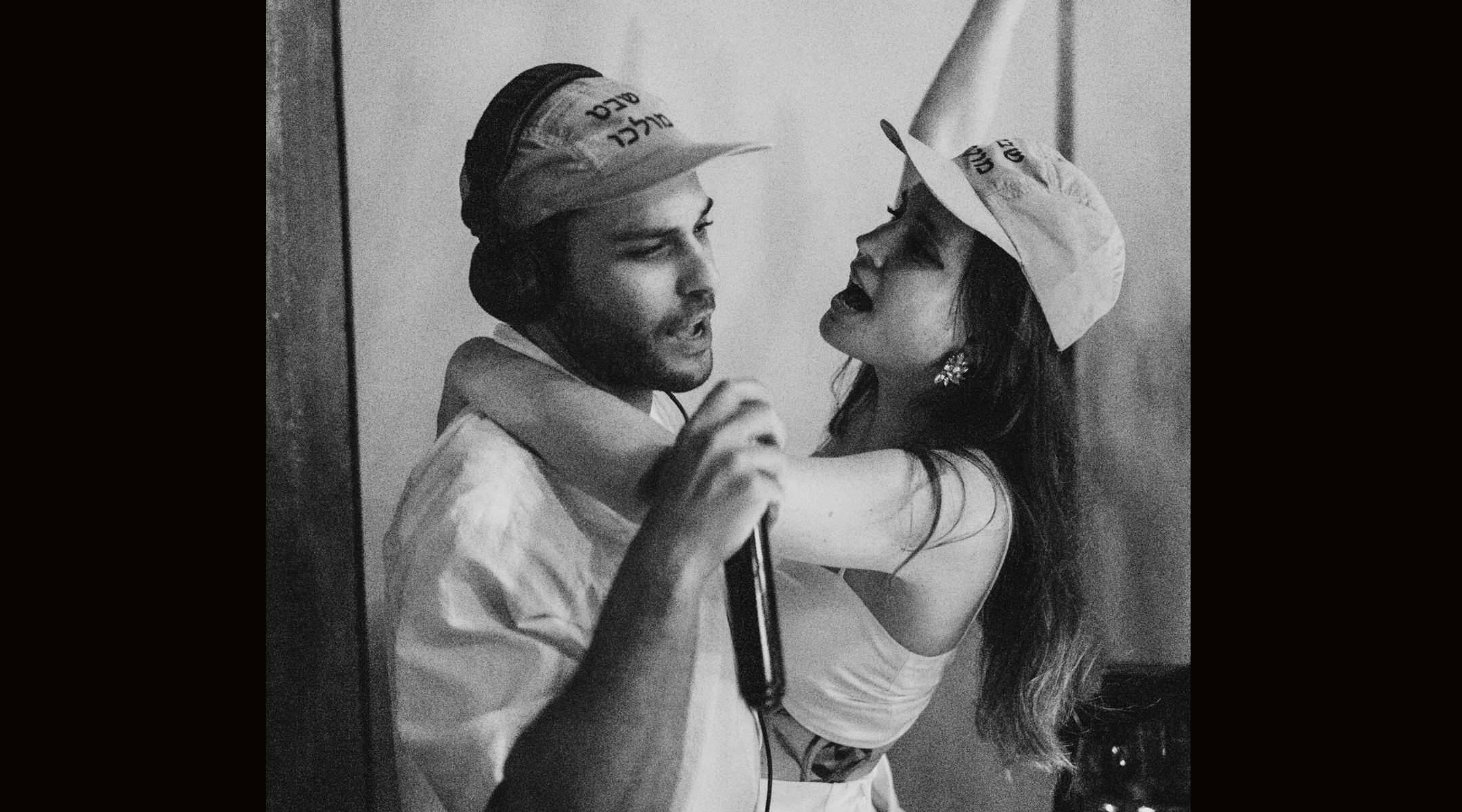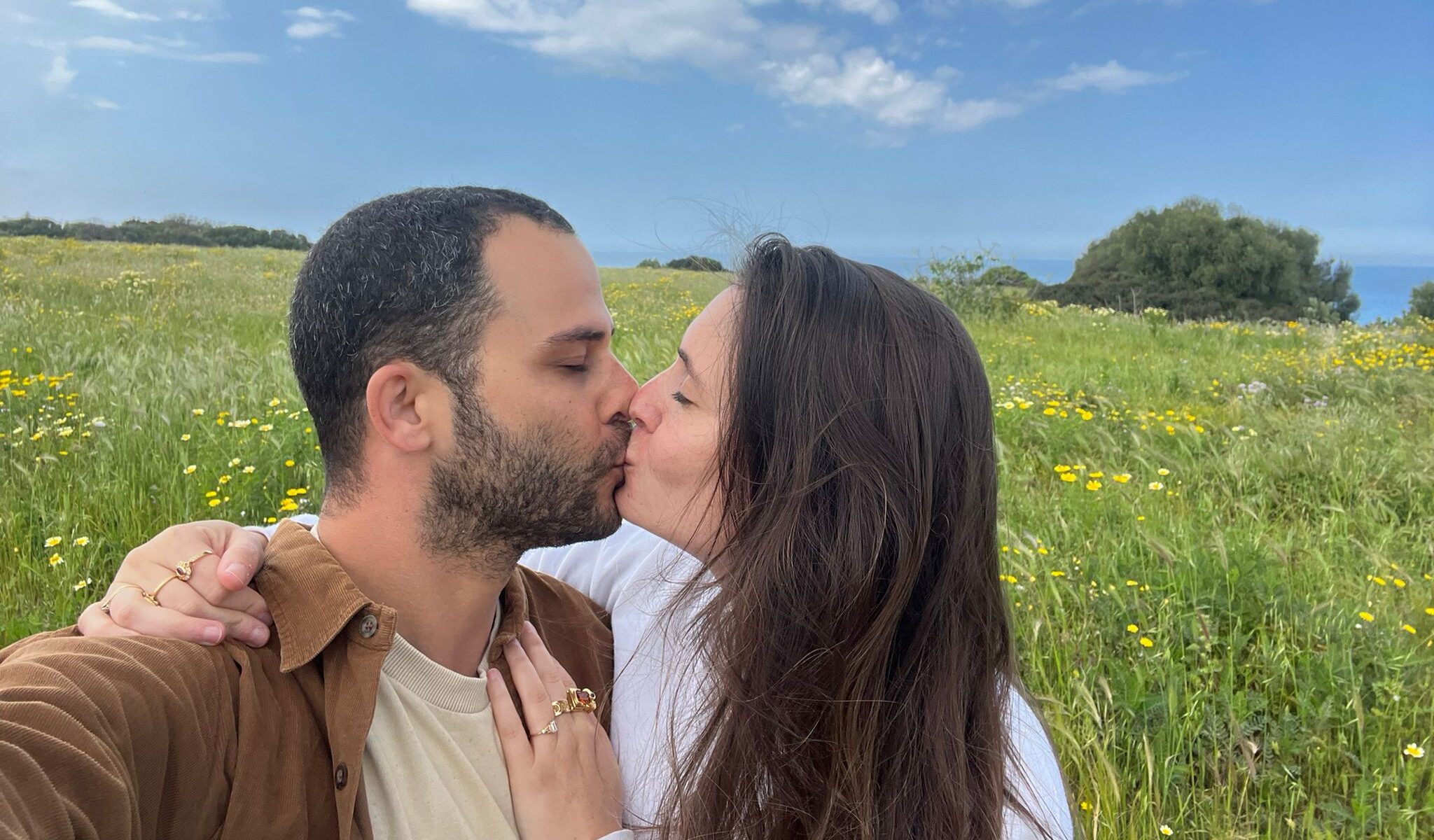TEL AVIV — Like so many in Israel, Adi Molcho has been mourning a personal loss for a full year. But unlike her grim compatriots, Adi’s husband did not die anywhere near Gaza.
Instead, Gilad Molcho was killed two days after the Hamas-led onslaught on Oct. 7 when he was among the first casualties of the war at Israel’s northern border. And in a country overwhelmed by sad stories, the couple’s has remained largely untold.
While the focus of the country was on the devastating attacks in the Gaza periphery, and with battles still raging in the south between Israeli security forces and thousands of terrorists, few Israelis remember the infiltration of Islamic Jihad terrorists from Lebanon into northern Israel on Oct. 9.
Adi feels that in the months since, her husband’s death has been overlooked, much like the plight of Israel’s evacuated northern residents has been until recently, as though their fates are intertwined. She takes particular umbrage with the government’s narrative — at first labeling it the “Gaza War” and then speculating about a potential new front on the northern border before it exploded into open conflict in recent weeks.
“What are they talking about?” she asks. “The war started in the north on Oct. 7.”
Ahead of the one-year anniversary of her husband’s death, Adi was determined to share her story.
Gilad Molcho, a reservist from the Golani Brigade’s elite Egoz commando unit, was called up to the northern border on Oct. 7. He was one of three soldiers killed by Islamic Jihad terrorists who had breached the border and shot at their jeep. According to the IDF, Molcho’s small team thwarted an attack near Kibbutz Adamit.
It took a full 24 hours before Adi, his wife of less than two months, received the news — and even then, it came not from the IDF, but from his sister, Omer. The misstep was just one of many that still haunts Adi.
“At first she didn’t understand that I didn’t yet know he was dead. I just screamed at her, ‘Tell me he’s wounded!’” she said of the conversation with her sister-in-law. “I was praying for that. Even if he’d lost both legs, I would be there to help him.”

Adi and Gilad Molcho on their wedding day, in August 2023. Gilad Molcho was killed while serving in the Israeli army on Oct. 9, 2023. (Courtesy Adi Molcho)
The ensuing hours would be torturous for Adi. She refused to believe Gilad was dead until she saw him. But the authorities initially weren’t sure where he was. When she was finally admitted into the morgue, she climbed on her husband’s lifeless body.
“I hugged him and kissed him until they had to force me out of there,” she said.
Adi and Gilad had shared a whirlwind love affair, with her moving in just two weeks after their first date, two years earlier. She struggled to describe their bond. “He’s the love of my life in a way that’s hard to put into words. We were inseparable. Love like that just doesn’t exist.”
The hours after his death would prove critical for fulfilling Adi’s dream — now warped into a grim new reality — of having children with Gilad. Two months earlier, the couple had casually discussed what Adi should do if the unthinkable ever happened to Gilad. They agreed she would use his sperm to have his children — a procedure Adi understood well because her mother is a doctor who specializes in posthumous sperm retrieval.
But the conversation, she said, was purely hypothetical. “I made him swear that we would live till 90 and that I would never die alone,” she recalled.
The couple had planned to go on a honeymoon in November. In a phone call three hours before his death, Gilad made another promise: “He swore up and down that he would be on that plane with me.”
Israel has been a pioneer in posthumous sperm retrieval. While no specific law addresses the use of a deceased spouse’s sperm for procreation in Israel, Israeli courts have been approving requests from spouses to use their deceased partner’s sperm based on past precedents, and the army has relaxed some of its policies to allow parents as well as the spouse to authorize the process.
According to data from the Ministry of Health Fertility Center, sperm extractions were performed on 171 IDF soldiers between Oct. 7, 2023, and Aug. 28 — nearly a quarter of the 705 soldiers killed in action until then.

Gilad and Adi Molcho dance together in an undated photograph taken before Gilad’s death on Oct. 9, 2023. (Courtesy Adi Molcho)
Gilad Molcho was one of them — though if not for her mother’s intimate knowledge of the system, Adi is certain she would never have managed to extract his sperm within the critical 36-hour window needed for such procedures.
The months after Gilad’s death were a haze. Adi moved in with his parents, whom she described as treating her like a daughter. Yet even with their presence, her days were listless, spent mostly in bed and eating little more than a couple of cookies a day. It took two months before she could muster the wherewithal to change her clothes or brush her teeth.
Her boss gently coaxed her to come back to the office, even if just for an hour, at the tech company where she worked in sales. She agreed and gradually returned to work for longer and longer stretches. From that point on, Adi would live out two existences.
“There’s this bizarre disconnect. I can be crying my eyes out and the next moment I get on my computer to do a sales demo. Then when I’m done I go right back to crying. It’s like two parallel worlds.”
Her colleague, Ruth Wailand, credited Adi with radiating positivity and resilience when in the office. “She always has a smile on her face, she’s amazing,” Wailand told JTA.
But Molcho demurs. “A smile on the outside is not the same as an inner smile. A lot of the time I’m faking it because I understand there’s no choice. There are lots of times that I break down. I can’t tell you the amount of times I’ve cried in the bathroom stall and nobody knows.”
After three months, Adi moved back home. Milestones like birthdays and anniversaries are harbingers of a unique kind of anguish, but for Adi, it’s the mundane moments that hurt the most. She has yet to go shopping or cooking, explaining that they did everything together. The first time she hung up the laundry — only to find a stray shirt of his — or the first time she chopped vegetables were particularly gut-wrenching moments. “Our whole life was filled with these little rituals,” she said.
Another, larger ritual the couple had was attending the weekly protests against the government’s judicial overhaul. Since her husband’s death, Adi hasn’t watched the news and has distanced herself from politics. Nonetheless, in early September she joined tens of thousands on the street to demand the government secure a hostage deal after the bodies of six hostages, who had been executed by Hamas, were discovered in a tunnel in Rafah.
“There was a speech about everyone coming back in coffins and it suddenly dawned on me that I’m a part of what they’re protesting against,” she said. “It’s a horrifying realization. I’m used to standing there with Gilad, not thinking about him coming back in a coffin. How can that be?”
Her longing for Gilad only grows stronger with time, she said, but inversely, she has found herself able to function for longer periods. On her worst days, she calls her brother, a company commander currently fighting in Gaza, when he is on leave. “I scream at him, ‘I can’t deal with this pain.’” she said. “But an hour later, I’ll pick myself up off the ground and do something. Because there’s no choice. We need to go on.”
Adi is holding off getting pregnant until she feels stronger emotionally but she said she hopes to begin the process in the coming months.
The days surrounding the anniversary have brought a sense of regression, but she holds on — for Gilad and for the future children they hoped to have.
“I tell myself, Gilad doesn’t allow me to die,” she said. “If I live, I have to do it properly. To live without living is not worth it.”
JTA has documented Jewish history in real-time for over a century. Keep our journalism strong by joining us in supporting independent, award-winning reporting.






